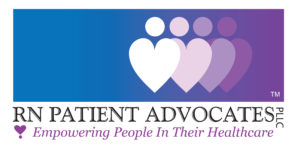We are only 10% human. What? Microbes outnumber human cells by 10 to 1 and are essential to our health.
 There are the harmless ones, the ”favor traders” who rely on us for survival as much as we rely on them for survival (this is the greatest percentage), and the small percentage of potentially dangerous ones called pathogens. These microbes are every bit as important – and perhaps more – as the genes we inherit from our parents.
There are the harmless ones, the ”favor traders” who rely on us for survival as much as we rely on them for survival (this is the greatest percentage), and the small percentage of potentially dangerous ones called pathogens. These microbes are every bit as important – and perhaps more – as the genes we inherit from our parents.
Your inherited genes are fixed – although you can influence which ones become more or less active – while it may be possible to reshape this second set of genes in our bodies. Certainly this happens every time we take antibiotics or probiotics.

What else do our microbes do for us?
- Support and protect our immune systems
- Help manufacture neurotransmitters like serotonin
- Play a role in producing critical enzymes and vitamins – like B and K
- Reduce inflammation
- Play a critical role in the absorption of our food
What can this mean? Well, one of the keys to good health may turn out to involve managing our internal microbial environment. To do this, diet is a key player. Processed food and the Standard American Diet all erode the good bacteria. Something to think about.
Learn more about your internal microbial world. . .
 There are the harmless ones, the ”favor traders” who rely on us for survival as much as we rely on them for survival (this is the greatest percentage), and the small percentage of potentially dangerous ones called pathogens. These microbes are every bit as important – and perhaps more – as the genes we inherit from our parents.
There are the harmless ones, the ”favor traders” who rely on us for survival as much as we rely on them for survival (this is the greatest percentage), and the small percentage of potentially dangerous ones called pathogens. These microbes are every bit as important – and perhaps more – as the genes we inherit from our parents.
Your inherited genes are fixed – although you can influence which ones become more or less active – while it may be possible to reshape this second set of genes in our bodies. Certainly this happens every time we take antibiotics or probiotics.

What else do our microbes do for us?
- Support and protect our immune systems
- Help manufacture neurotransmitters like serotonin
- Play a role in producing critical enzymes and vitamins – like B and K
- Reduce inflammation
- Play a critical role in the absorption of our food
What can this mean? Well, one of the keys to good health may turn out to involve managing our internal microbial environment. To do this, diet is a key player. Processed food and the Standard American Diet all erode the good bacteria. Something to think about.
